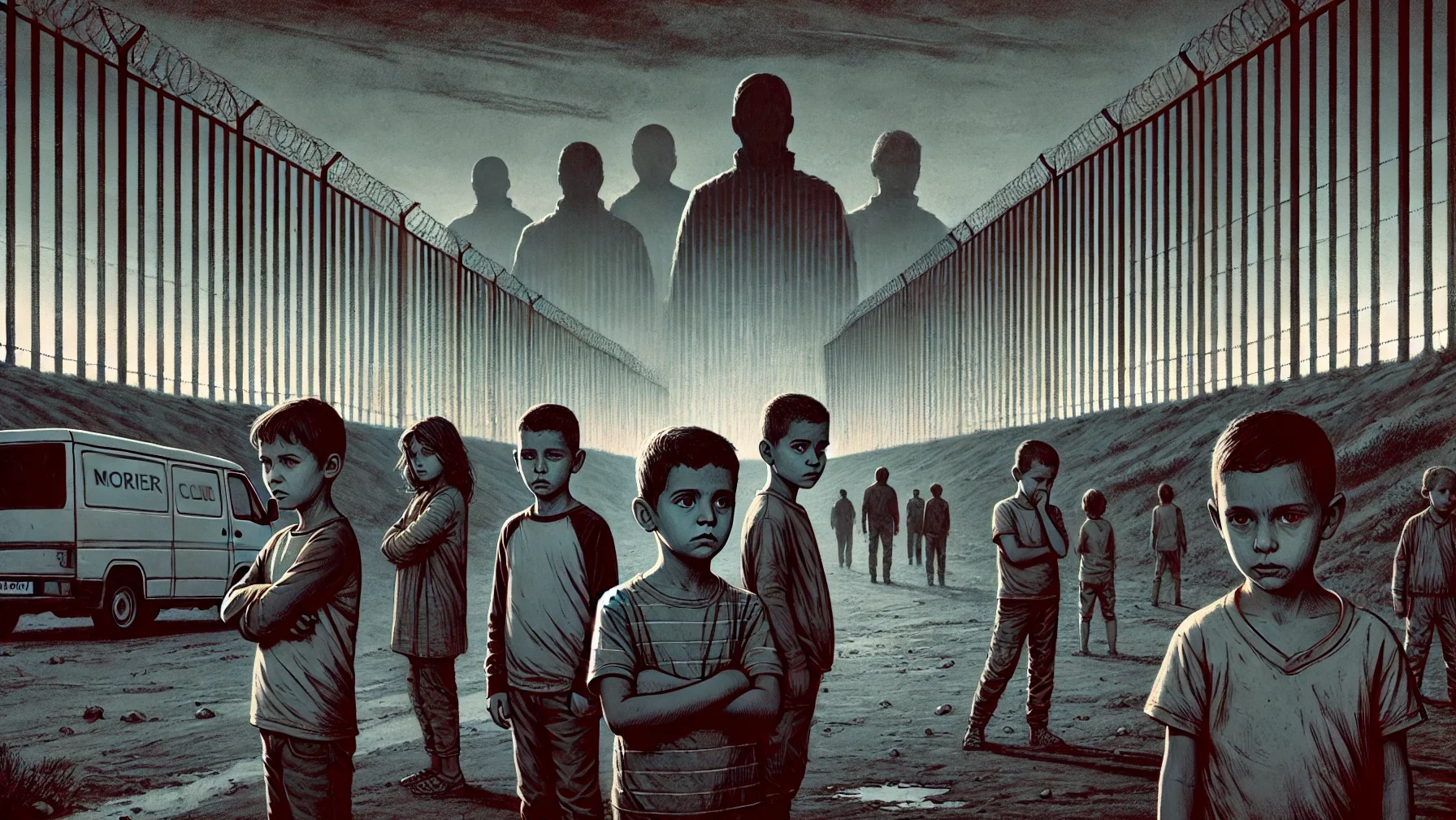The Events at the Border Were Organized and Orchestrated
Al-Arab, London, September 21
Hundreds of migrants tried to scale the border wall between Morocco and the Spanish enclave of Ceuta last week before border agents pushed them back, arresting many in the process. Many of them were children. Those behind the attempt to breach the border are exploiting children and adolescents—whose natural place is in schools—and inciting them to emigrate in order to embarrass Morocco both internationally and regionally. The public call to organize a mass migration, disseminated via social media, marks a new tactic by networks operating between Morocco and the host territories of Ceuta and Melilla. Human trafficking syndicates are known to organize clandestine migrations using small rubber boats, transporting those willing to pay substantial sums to reach Europe, often disregarding the life-threatening risks involved. The recent announcement of departure times and locations in Fnideq, northern Morocco, which mobilized Moroccan security forces, is not as innocent as it appears. Simply attributing these mass migration attempts to social circumstances is an insufficient explanation. The heightened security measures in Fnideq and surrounding areas near occupied Ceuta to thwart mass migration attempts through the exploitation of children and adolescents fall within the remit of state sovereignty and border control. While public policies, unemployment, and slow development play a role in these events, the state is actively addressing these conditions. What remains critical is the incitement driving these youngsters to risk their lives to reach the “promised paradise.” It cannot be denied that a desire for better social conditions, improved income, and the allure of Europe contribute to the migration drive. However, there is also the undeniable element of constant incitement through social media, with children and adolescents receiving insufficient protection from family, schools, and society at large. The notion that children leave school and head directly for the border, often with peers, points to a serious problem. Adolescents make easy prey for trafficking networks, which view them as mere financial gain, disregarding their potential fate—be it drowning, arrest, or exploitation in various forms. The thwarted attempt last week, involving teenagers and young people trying to storm Ceuta, was intended to exert legal pressure on Morocco—especially in its capacity as chair of the Human Rights Council. Exaggerating the events in Fnideq serves to undermine the kingdom’s credibility, portraying Morocco as a nation lacking development and a promising future. This narrative aims to damage the economy and deter investors. These acts of incitement also target Morocco’s efforts to clamp down on smuggling, offer amnesty to cannabis farmers, combat drug lords, and prosecute those involved in corruption. Incitement’s influence is undeniable and its reasons are evident. Alejandro Ramirez, the spokesperson for the government of occupied Ceuta, himself stated that “this wave is not spontaneous; it is imperative to identify those orchestrating these calls via social media.” Migration is inherently tied to social and economic issues, such as unemployment, low living standards, and inadequate services. Remarkably, the same entities are issuing another call for a mass migration attempt in 15 days, demonstrating their audacious intent to destabilize the kingdom and undermine its significant strides in immigration management. The Kingdom of Morocco has proactively adopted a national strategy for migration and asylum. This comprehensive plan revolves around legal and institutional reforms, humane standards for irregular migrants, and collaborative efforts of both official and unofficial stakeholders including the National Council for Human Rights. Addressing and managing irregular migration flows through this multifaceted approach highlights Morocco’s commitment to human rights. The activities of criminal networks specializing in smuggling differ by target, charging varied fees for the illegal passage of children, women, or men. Consequently, these networks amass millions annually, engaging in human trafficking, recruitment for armed conflicts, and smuggling of weapons and drugs. Moroccan authorities’ efforts to disrupt these smuggling operations are often met with fierce resistance, revealing alliances with groups aiming to drain Morocco’s resources and derail its anti-migration strategies. Focusing on recurring social problems and unemployment, it is essential to underscore that economic and social programs targeting Moroccan society must be closely monitored and evaluated. Administrative, ministerial, or parliamentary officials who neglect their responsibilities should be held accountable. Children and adolescents, bombarded with incitement through social media with negligible protection from familial, educational, or societal frameworks, are particularly vulnerable. We must acknowledge that social and economic challenges, such as unemployment and inadequate living conditions, drive migration. Similar circumstances have led individuals from the Sahara, Yemen, Syria, and other conflict-affected or underdeveloped regions to seek refuge and opportunities in Morocco or risk perilous crossings to Europe. The significant security measures in Fnideq to prevent mass migration through the exploitation of children highlight the state’s commitment to sovereignty and border control. Yet, evaluating development policies and creating economic opportunities in vulnerable regions remain equally crucial. Beyond border security, a focus on social and educational development is necessary to provide stable environments that allay the fears and uncertainties of adolescents and children about their futures. Exploiting social and economic vulnerabilities by using children and adolescents to embarrass Morocco internationally and regionally undermines the country’s remarkable achievements. Morocco’s burgeoning network of international partners, strategic relations, increased investments, and diplomatic victories in asserting its sovereignty over the Sahara have fortified its standing. —Mohamed Mamouni al-Alaoui (translated by Asaf Zilberfarb)

